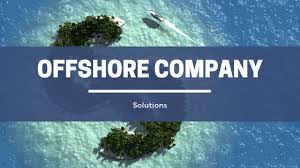Tax Planning Strategies of the Super-Rich
Tax Planning Strategies of the Super-Rich

How the Wealthy Optimize Their Tax Burden
Benjamin Franklin once coined the timeless aphorism: “Nothing is certain in life except death and taxes.”
This statement underscores two unavoidable realities of human existence. While the first certainty is undeniable, the second doesn’t necessarily apply in its full force – at least not for the wealthy of this world.
The approach of the super-rich to taxes is often anything but conventional. With their significant wealth, the corresponding expertise, and sophisticated strategies, they often succeed in significantly reducing their tax burden instead of seeing it steadily grow.
Experienced investors and wealthy individuals employ a wide range of legal strategies. These range from tax deferral options and targeted tax relief to the strategic use of capital gains structures and the choice of advantageous corporate structures.
This is by no means about evading legal obligations. Rather, the focus is on intelligently utilizing existing tax laws to minimize individual tax liability. Best of all, each of these strategies operates within the legal framework and doesn’t utilize questionable loopholes, but rather the existing provisions to protect and grow wealth.
Given these insights, the attentive reader may wonder to what extent these sophisticated strategies are accessible. What wealth level is required to reap their benefits, and what concrete steps can you take to optimize your own tax situation today?
The Threshold for Using Sophisticated Tax Strategies
In practical application, these more complex tax planning strategies typically become fully effective once a certain wealth level is reached. At this point, the potential tax savings or deferrals exceed the costs associated with implementation. This threshold can be as low as approximately $500,000 in investable assets, especially in regions with a high tax burden.
But even if your current assets haven’t yet reached this amount, professional advice from an experienced tax advisor is invaluable. An expert can help you identify various deductions and tax credits tailored to your specific financial situation. They can also assist you in selecting retirement savings plans with tax-efficient growth opportunities.
Elite Tax Tactics: Strategies for HNWIs and UHNWIs
For high-net-worth individuals (HNWIs) with investable assets of at least $1 million and ultra-high-net-worth individuals (UHNWIs) with at least $30 million, the tax strategies employed can become significantly more complex.
This involves far more than just owning assets; knowing how to optimally structure and manage those assets is crucial. The strategies employed typically consider assets in different jurisdictions, different tax residences, and the interplay of various national and international tax laws.
Tax planning in these wealth classes is becoming an ongoing task, requiring a dedicated team of experts and extending far beyond the usual, hectic year-end grappling with tax issues.
Common tools and tactics include minimizing capital gains taxes, establishing holding companies in countries with attractive tax laws, and strategically leveraging tax allowances for donations and gifts.
These are all viable options, with each method aiming to not only preserve wealth but also sustainably grow it within the framework of legal regulations.
Wondering how these strategies work in practice? Below, we’ll explore some of the most popular approaches in more detail and show how they can be adapted to the needs of individuals seeking to optimize their financial situation.

Effective Asset Management Through Holding Structures
A proven strategy is to use a holding structure, such as a Limited Liability Company (LLC), to centrally manage various assets – be they real estate, securities portfolios, or corporate investments.
An LLC acts as an umbrella company that consolidates all your assets under a single organizational framework. This centralization of your investments not only gives you a clearer overview of your overall financial situation, but also simplifies the management of your investments and supports more informed decision-making.
Specifically, a company is established that holds and manages assets separately from your personal assets or operating business units. This provides protection against business liabilities while optimizing tax efficiency. For example, gains from capital investments can be channeled to minimize the tax burden by taking advantage of more favorable tax regimes.
The United Arab Emirates (UAE), in particular, offers an ideal environment for this. With their free trade zones, which offer benefits such as zero corporate and income taxes, full foreign ownership, and no currency restrictions, they represent an attractive location for the effective management of international assets.
By strategically pooling asset management, you not only protect your capital but also reduce the complexity associated with large-scale investments. This proactive approach may initially seem complex, but it offers significant benefits in terms of asset protection, tax optimization, and structured succession planning.
Charitable Donations as a Management Tool
Donations to non-profit organizations are a popular way for many wealthy individuals to reduce their tax burden while making a positive contribution to society. The basic principle is simple: donations to recognized charities are tax-deductible in many tax systems, effectively reducing the tax payable.
However, simply writing a check to a preferred organization is not enough. Rather, it’s important to understand the different types of donations and their specific tax implications. For example, you can donate cash, but also assets with an appreciation in value, such as stocks or real estate. By donating securities or real estate that have increased in value, you not only benefit from a deduction equal to the current market value, but also avoid capital gains tax on the increase in value. This benefits both you and the beneficiary organization.
In the UAE, where there is no income tax, the focus of charitable donations is less on directly reducing the tax burden and more on promoting social and corporate responsibility. However, if you generate international income or invest in countries with tax deductions, charitable donations remain a valuable tool for optimizing your global tax position.
The amount of the donation varies from individual to individual. Some high-net-worth individuals establish foundations or donor-advised funds (DAFs) to plan and manage their charitable activities over the long term. Others prefer larger, one-time donations. In the UAE, traditional forms of charity such as zakat also play an important role. Zakat is one of the five pillars of Islam and typically involves donating 2.5% of accumulated wealth.

Estate Planning and Using Gift Tax Allowances
Many countries offer special allowances and exemptions under inheritance and gift tax. These allow you to transfer certain assets to your heirs tax-free during your lifetime or after your death.
In the United Kingdom, for example, there is an inheritance tax (IHT) allowance that allows you to leave up to £325,000 of your estate tax-free. If the value of your estate exceeds this amount, inheritance tax is typically 40% on the excess amount. Under certain circumstances, such as leaving your home directly to your children or grandchildren, this allowance can increase by up to £175,000, allowing a potential total allowance of £500,000 per person.
In addition, you can give up to £3,000 tax-free in each tax year using your annual gift allowance. In addition, smaller gifts of up to £250 per person per tax year are permitted, to any number of people, provided they have not already received part of your annual £3,000 allowance.
Although there is no inheritance tax in the UAE and a large part of the population is made up of expats, careful estate planning is essential to avoid having your assets automatically subject to Sharia law.
Fortunately, the DIFC Wills Service Centre offers a solution for non-Muslims by allowing them to register a will under common law principles, rather than having to rely on local inheritance laws.
It is also possible to establish trusts and foundations in the major financial centers DIFC (Dubai International Financial Centre) and ADGM (Abu Dhabi Global Market). These instruments allow you to establish specific terms for the distribution of your assets and simplify the administration and transfer of assets, especially in cross-border wealth situations.
Strategic Use of Capital Gains Tax Regimes
If you own assets or investments in multiple countries, you can achieve significant tax savings by having a thorough understanding of the respective legal frameworks and carefully planning the sale of those assets.
For those operating internationally or with broadly diversified portfolios, it’s common practice to strategically time asset sales to coincide with residency in a low-tax jurisdiction. By timing the sale of an investment during a period when you are resident in a country with favorable capital gains tax laws—or possibly even no capital gains tax—you can significantly reduce your tax burden.
Another method is to use losses in one part of your portfolio to offset gains in another. If you face a potential tax liability on gains from a particular asset, you could consider selling another, less performing asset to mitigate your overall tax burden.
For those with a high degree of flexibility, it can also be beneficial to structure their ownership by holding investments in different countries. Establishing trusts or companies in countries with favorable tax treaties or lower capital gains tax rates can protect your assets from higher taxes and simplify the management of your global investments.
Maximize Your Financial Opportunities Through Strategic Tax Planning
The strategies outlined above require careful planning and in-depth knowledge of international tax law. Therefore, in most cases, it is advisable to work closely with an experienced tax advisor who can provide tailored advice for your specific situation.
While a variety of creative strategies are available to you, it is crucial to regularly review your existing investment structure and adapt it to changes in tax laws and market conditions to best protect your assets. It is also beneficial to diversify your investments not only across different asset classes but also across different jurisdictions.
To fully utilize your financial potential while complying with all legal requirements, you should seek professional advice. Contact a tax advisor today to develop an individual strategy that is optimally tailored to your needs and secures your assets for the long term.
We’ve helped hundreds of people move their businesses overseas, legally reduce their taxes, and become dual citizens. We are focused on high-net-worth individuals and their families as well as corporations wishing to invest their offshore companies or even secure their wealth in offshore financial centers around the world. We will help you to find the best solution for setting up an offshore or onshore company. Another special area of our full-service consulting is the investment opportunity and solution in Europe, especially in the Balkans, Africa, Asia, UAE, the Caribbean and the Pacific.
If you are looking for it, please feel free to contact us. We create a holistic plan that serves your purpose.
The TCME Group Worldwide as well its partner in Vanuatu are accredited, licensed and authorized agents and facilitators of the Government of Vanuatu for the citizenship programs of the VDSP and the CIIP in Vanuatu.
GCI UNIT Worldwide by TCME Worldwide Group, designs and implements customized, holistic strategies for successful investors and entrepreneurs to legally reduce their tax bills, diversify and protect their wealth, invest abroad, gain a second citizenship and live a freer life worldwide to lead.
YOUR CHANCE FOR A BETTER LIVE
TCME Worldwide Group firm is a leading professional International Business Investment and Advisory Firm for Foreign Economic Relations. Our range of services includes:
Offshore and Onshore Company Formation,
international Business & Management
Citizenship & Residency (Advice on residency and citizenship by investment programs, VIP citizenship programs in cooperation with more than 70 countries)
Investments & Corporate Financing
Advisory for Foreign Economic Relationship
Diplomatic Consultancy & Public Affairs
If you would like to discuss your internationalization and diversification plans, book a consulting session* or email us under: [email protected]
*A counseling session is a conversation about your portfolio and goals. It does not constitute legal, financial, tax or investment advice.
TCME Worldwide Group – Global Investments –
Level 33, Ilham Tower, 8 Jalan Binjai,
Kuala Lumpur 50450, Malaysia
www.tcme.company
www.citizenship-news.com
International Phone: +66 99091 8357 (also for BOTIM, Signal, Viber, Telegram)
Malaysia Phone: +603 2169 7057
Montenegro Phone: +382 69 150 130 (WhatsApp)
Telegram https://t.me/passport_Vanuatu
Telegram https://t.me/passport_news





